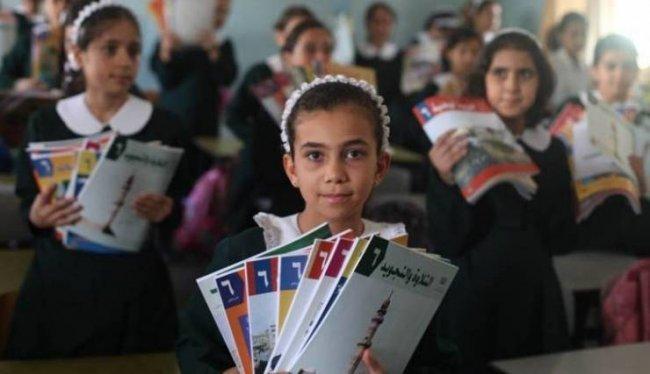PAL’s lobbying activities
PAL’s lobbying activities primarily aim to influence governmental agencies at all levels to adopt legislation and implement measures that protect animals. Currently, the welfare of animals is not an aspect taken into consideration within governmental agencies when developing and implementing different projects, and no serious laws exist to ensure the protection of animals. Thus PAL will work in collaboration with other civil society organizations, universities, individuals, and activist groups to advance the adoption of such animal protection laws, measures, and regulations and to ensure that animal welfare is being considered by governmental agencies when implementing different projects.
PAL believes that animal welfare should not be the responsibility of animal welfare organizations alone. PAL endeavors to involve governmental bodies and civil society organizations in the effort to advance animal rights in Palestine.
PAL’s Main Lobbying Focus Areas

– Implemented trial CNVR program in cooperation with Dog Trust and the University of An Najah in 2016, and nurtured 260 dogs from the area of Tulkarim. This pilot project allowed us to evaluate, reassess, and adapt the program for future implementation.
– In 2019 PAL signed a letter of cooperation with the Ministry of Local governance regarding the development of the Stray Animal Control program.
– Cooperated with the municipality of Ramallah which has already implemented the CNVR program starting in 2022.
– Organized workshops for municipalities, and other relevant ministries to introduce the Stary Animal Control project.
– Upcoming training programs for dog handlers and vets in cooperation with An Najah University in 2023
National Stray Animal Control Project
Strategic Goal:
Support the government in developing and implementing effective programs for the management of the stray animal population in Palestine.
It is our firm belief that amongst the other humane alternatives such as kill shelters and no kills shelters and the inhumane alternatives such as culling, the Catch, Vaccinate, Nurture, and Release program as part of the larger Stray Animal Control program is the most sustainable, humane, and effective solution for controlling the population of stray animals in Palestine.
Why CNVR?
- The stray dog and cat population is perhaps one of the most visible animal welfare problems in the West Bank.
- At PAL we have long believed in the power of stray animal control programs to relieve some of the most urgent welfare issues that stray animals suffer from.
- At present time most local governments in Palestine resort to culling as the solution to control the populations of stray animals, and especially dogs. Lethal poisoning and shooting are the most frequently used methods. Both cause suffering for the animals and are ineffective in the long term.
- The large numbers of stray animals in the streets negatively impact their health conditions, in addition to creating hatred towards them in the community in turn causing more violence towards these animals.

Our Approach
While at PAL we believe in the power of advocacy and community engagement initiatives in inspiring kinder treatment of animals, we still believe that proper laws and regulations would be the strongest deterrent to animal cruelty. Thus in addition to the advocacy and awareness-raising activities incorporated into many of our projects, we are also working to establish laws that regulate the treatment of animals and that prohibit cruelty to animals.
Status:
seeking funding
We are in the process of seeking funding for this initiative and invite potential funders to contact us to discuss how they might be able to get involved in this pioneering project. Please contact us for more information.
Legal protection of animals in the occupied Palestinian territories
Strategic Goal: Facilitate and accelerate the development of legal frameworks that protect animals in Palestine.
Legal Animal Protection in Palestine
At present, there is no meaningful legal protection for animals in the occupied Palestinian territories. PAL has developed a project proposal in conjunction with the Institute of Law, at An Najah University, to begin to devise an extensive legislative policy to regulate the treatment of animals in homes, pet shops, animal trade, slaughterhouses, farms, hunting, research, and transport.
The Palestinian Ministry of Agriculture has encouraged work in this area and the hope is that this joint initiative will result in the introduction of the region’s first-ever dedicated animal welfare law.

Our Approach
For years PAL has been conducting a range of activities such as workshops, training sessions, summer camps, and events to raise awareness and spark interest in animal welfare issues. Such events are almost always targeted at youth. However no matter how many people such activities can reach, it would never be able to reach as many students as an official curriculum would, thus we find the need to incorporate such materials in school curriculums to get to a larger audience and to have more consistency in the delivery of such knowledge.
In addition, we believe that vet school students are one of the most important sectors of society to have knowledge of animal rights and animal welfare concepts since they are the ones who will directly be dealing with animals and since they are trusted sources of knowledge and impactful influencers in spreading such knowledge to the general population. Currently vet school curriculums do not focus on such topics and this is why PAL intends to work with the Ministry of higher education to ensure the incorporation of such materials into the curriculum.
Status:
seeking funding
We are in the process of seeking funding for this initiative and invite potential funders to contact us to discuss how they might be able to get involved in this pioneering project. Please contact us for more information.
Animal Welfare Curriculum Development
Strategic Goal:
Influence educational materials from elementary schools through veterinary schools to incorporate animal welfare principles in their curriculum and to evoke respect for animals and nature through such educational material.
In cooperation with the ministry of education and the ministry of higher education, PAL is working to incorporate theoretical and practical knowledge about animal welfare, animal rights, and animal sentience in school curriculums.
